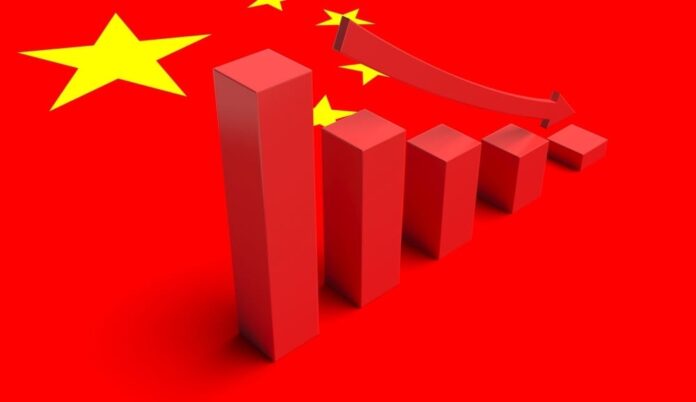
According to the most recent Global Economic Prospects report from the World Bank, China is unlikely to achieve its projected GDP growth rate despite numerous domestic and international setbacks brought on by its zero-Covid policy and aggression.
Growth in China is anticipated to be 4.3% in 2023, which is 0.9 percentage points less than the prior projections. The world’s second-largest economy is currently losing ground.
In light of increasing inflation, higher interest rates decreased investment, and interruptions brought on by Russia’s invasion of Ukraine, the World Bank’s most recent Global Economic Prospects report indicates that the world economy is currently contracting severely.
According to World Bank assessments, China’s rapid growth rate, dependent on investment, low-cost manufacturing, and exports, has reached its limitations and resulted in economic, social, and environmental imbalances.
It is necessary to change the economy’s structure from manufacturing to high-value services, from investment to consumption, and from high to low carbon intensity; none of these changes appears to be high on the agenda of the Communist Party of China’s mandarins.
Beijing has suffered due to the slowdown in the real estate industry, which was brought on by the tightening of rules and the consequent squeeze on developer liquidity. Due to buyers’ negative attitudes during Covid-19 outbreaks that were often happening and their refusal to invest in homes that were still being built, the demand for real estate has continued to be depressed.
The real estate industry’s slowdown is having a domino effect on China’s economy. The Chinese government has promoted faulty real estate investment to support an unsustainable growth rate. Real estate developers had a period of prosperity thanks to financing at favourable rates.
According to Financial Post, these real estate companies cannot pay back their debts since the market is saturated and the demand for real estate has fallen.
The total growth rate has decreased due to structural limitations such as a slowdown in the rate of labour force expansion, declining investment returns, and a slowdown in productivity growth.
The World Bank has noted that Beijing is the greatest offender in rising geopolitical tensions, tightening financial conditions globally, and climate change, all of which threaten the Chinese economy.
In manufacturing centres like Shenzhen and Tianjin, the harmful zero-Covid policy that Beijing ultimately abandoned in December 2022 has already had a negative impact. According to unpublished studies, according to Financial Post, industry output decreased in September 2022.
Severe heat waves have boosted residential demand for power through increasing usage of air conditioners in locations like Siachen and Chongqing, where industries depend on hydroelectric power. In contrast, generation has decreased due to drought-like conditions.
Less power was provided to the manufacturers as a result. Due to a lack of energy, Tesla and Foxconn, two manufacturers of iPhones, were forced to reduce their operating hours or shut down completely. According to Financial Post, profits in the iron and steel sector, China’s main growth driver, fell by 80% in the first seven months of 2022.
